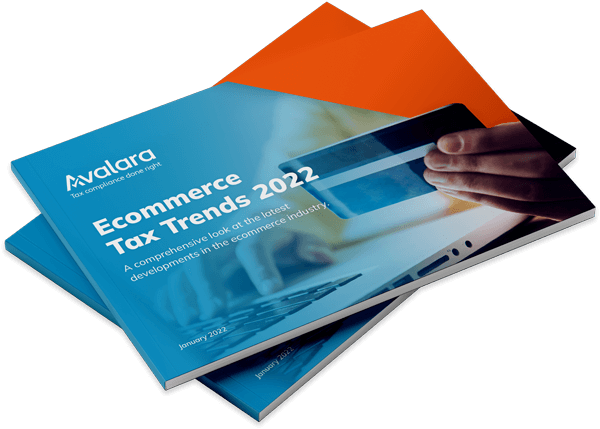
E-invoicing and digital reporting in the USA
The U.S. is the only major economy in the world without a federal VAT or GST system. As sales tax is levied, reported and administered at a state and local level with no input tax credits or recovery, formal invoicing content requirements have not really developed. While e-invoicing is the clear direction of travel for governments and tax authorities around the globe, one of the challenges for the U.S. market is that there is no central government authority, either at the federal or state level to establish and administer a framework or mandate for e-invoicing across America. The United States Congress could mandate a framework but only for interstate transactions (as the Commerce Clause of the United States Constitution provides that the Congress shall have the power to regulate interstate and foreign commerce only). If this happened, it could convince states to adopt the same framework for intrastate sales. There is already a state level e-standard organisation that does create uniformity in how states and industry transmit e-documents.
There are currently no clear e-invoicing mandates either at a state or federal level. In addition, most businesses in the U.S. have more commercial freedom compared to most countries in terms of the data elements/fields required on invoices subject to sales tax and how these are presented to customers.
Promotion of electronic payments, remittance data and invoicing
The Business Payments Coalition (BPC), organised and led by the Federal Reserve Bank of Minneapolis, is a group set up to promote the greater adoption of electronic business-to-business (B2B) payments, remittance data, and invoicing. One current initiative of the BPC is to develop the standards and requirements to enable the broad exchange of e-invoices. Since 2016, the BPC’s e-Invoice Working Group has:
- Investigated and catalogued the challenges of e-invoicing in the U.S.
- Created and developed a proof-of-concept for a proposed e-Invoice Exchange Framework
- Launched an “E-invoice Exchange Market Pilot” to further prove the feasibility and viability for a federated network management model for e-invoicing.
U.S. E-Invoicing Pilot
The E-invoice Exchange Market Pilot will build and test a virtual network that will enable businesses to exchange e-invoices with one another through the establishment of a secure, open e-invoice delivery framework between providers. Under the pilot, there will be three waves of Access Point development and delivery, with the intent that each will try to incorporate the learnings of those that came before (with adjustments as needed). The pilot will run through year-end 2022 to establish an operational B2B invoice exchange framework for the U.S. market in 2023. The E-Invoice Exchange Market Pilot Work Group will be meeting in May in Miami, FL to discuss the next steps for the E-Invoice Exchange Framework for the U.S.
Electronic submission of sales tax returns
Some states do require that the sales tax return is submitted electronically. The Streamlined Sales and Use Tax Agreement (SST) is a multi-state effort to simplify and standardise sales tax compliance for businesses that sell in participating states. Under the SST, businesses must submit a sales tax Simplified Electronic Return (SER). This is a sales tax return based on a pre-defined XML Schema.
Proposed Sales Tax Digital Reporting – Massachusetts
While currently there are no real time digital reporting or e-invoicing requirements for sales tax, the State of Massachusetts has recently proposed "real-time" sales tax remittance by third-party payment processors. Massachusetts Governor Charlie Baker, as part of his 2022 Budget proposal, put forward a sales tax modernisation initiative that includes a real-time sales tax remittance requirement. This new requirement, if passed, would impact both retailers and financial services companies that process credit card transactions. This follows a recently enacted law requiring the accelerated remittance of sales and use taxes, room occupancy excise taxes and local taxes on restaurant meals.
In addition, the Streamlined Sales Tax Governing Board recently suggested it was looking for ways to address the large amounts of transactional data currently required for near-real time reporting and looking into how other jurisdictions handle it.
Get in touch now and speak to one of our indirect tax experts to see how Avalara can assist with sales tax compliance in the U.S. or e-invoicing.
A solution that complies with global e-invoicing rules

Futureproof your business and stay compliant with local regulations in over 60 countries.
A solution that complies with global e-invoicing rules

Futureproof your business and stay compliant with local regulations in over 60 countries.
Stay up to date
Sign up for our free newsletter and stay up to date with the latest tax news.




